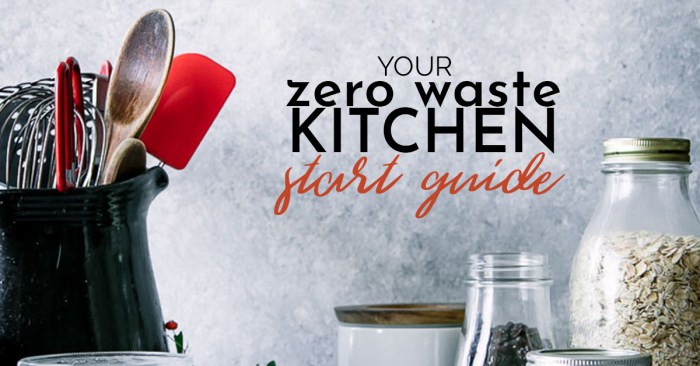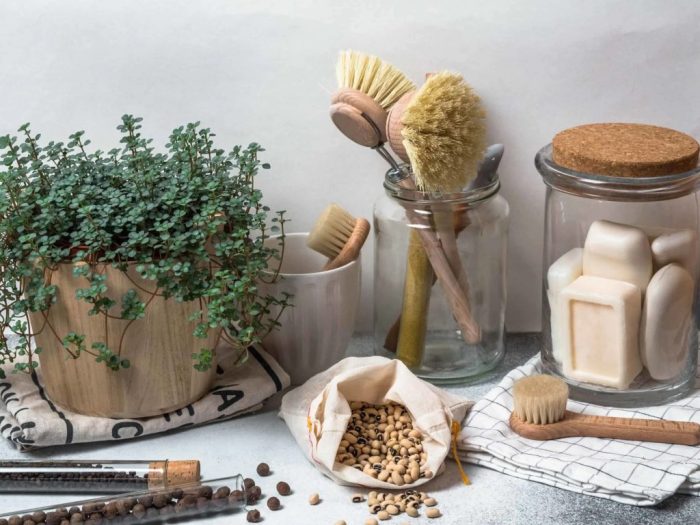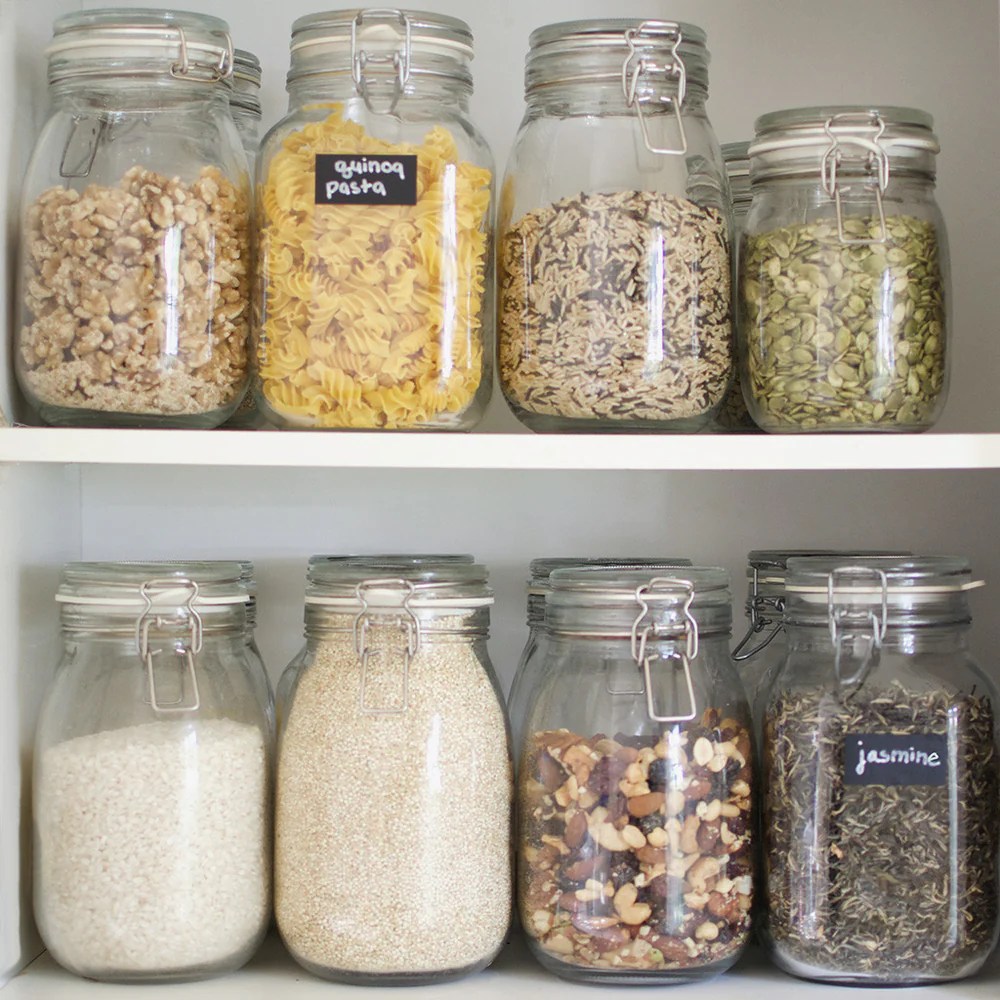Embark on a journey towards a Zero Waste Kitchen with these 7 simple steps. Discover practical ways to reduce waste and create a more sustainable cooking environment.
Learn how to compost effectively, eliminate single-use plastics, and embrace reusable containers for a greener kitchen.
Introduction to Zero Waste Kitchen

A zero waste kitchen is a sustainable approach to cooking and food storage that aims to minimize waste production by reducing, reusing, and recycling materials. It involves conscious choices and practices that help eliminate unnecessary packaging, food scraps, and single-use items.
Importance of Reducing Waste in the Kitchen
Reducing waste in the kitchen is crucial for environmental sustainability. By minimizing the amount of trash we produce, we can reduce the strain on landfills, conserve resources, and lower our carbon footprint. It also helps protect wildlife and ecosystems from pollution and waste contamination.
Benefits of Transitioning to a Zero Waste Kitchen
- Cost Savings: By buying in bulk and reducing food waste, you can save money on groceries.
- Healthier Lifestyle: Cooking from scratch with fresh ingredients can lead to healthier eating habits.
- Environmental Impact: Reducing waste helps preserve natural resources and reduces greenhouse gas emissions.
- Community Engagement: Joining the zero waste movement can connect you with like-minded individuals and organizations working towards a sustainable future.
Practical Steps to Achieve a Zero Waste Kitchen

Creating a zero waste kitchen involves practical steps that can significantly reduce the environmental impact of your household. By composting food scraps effectively, reducing single-use plastics, and finding alternative ways to store food without plastic packaging, you can make a difference in minimizing waste.
Composting Food Scraps Effectively
- Set up a compost bin or pile in your yard to collect organic waste like fruit and vegetable scraps, coffee grounds, and eggshells.
- Make sure to balance the green (nitrogen-rich) and brown (carbon-rich) materials in your compost to promote decomposition.
- Aerate the compost regularly by turning it with a pitchfork or shovel to speed up the composting process.
- Avoid composting meat, dairy, or oily foods as they can attract pests and slow down decomposition.
Reducing Single-Use Plastics in the Kitchen
- Invest in reusable alternatives such as glass containers, stainless steel straws, silicone food bags, and beeswax wraps to replace single-use plastic items.
- Buy in bulk or choose products with minimal packaging to reduce plastic waste from grocery shopping.
- Avoid using plastic wrap or aluminum foil by using reusable food covers or containers for storing leftovers.
- Opt for refillable containers for pantry staples like grains, spices, and oils to eliminate single-use plastic packaging.
Storing Food Without Plastic Packaging
- Use glass jars or containers to store dry goods like rice, pasta, and nuts instead of plastic bags or containers.
- Wrap fresh produce in cloth produce bags or beeswax wraps to keep them fresh without plastic packaging.
- Utilize silicone food covers or beeswax wraps to cover bowls or plates instead of using plastic wrap or aluminum foil.
- Consider investing in a vacuum sealer to extend the shelf life of food without the need for plastic wrap or bags.
Sustainable Kitchen Practices

Using reusable containers and bags is a significant step towards reducing waste in the kitchen. Not only does it help eliminate the need for single-use plastics, but it also helps minimize the amount of packaging waste generated.
Recipes for Homemade Cleaning Products
- DIY All-Purpose Cleaner: Mix equal parts water and vinegar in a spray bottle. Add a few drops of essential oil for a pleasant scent.
- Natural Scrub: Combine baking soda and water to create a paste for scrubbing countertops and sinks.
- Homemade Dish Soap: Mix castile soap with water and a few drops of lemon essential oil for a greener dishwashing solution.
Growing Herbs or Vegetables at Home
Growing your own herbs or vegetables at home is a great way to reduce packaging waste. By having a small indoor garden, you can pick fresh produce as needed, eliminating the need for store-bought herbs or veggies wrapped in plastic.
Conclusive Thoughts

In conclusion, adopting these simple steps can lead to a significant reduction in kitchen waste and contribute to a healthier planet. Take the first step towards a more eco-friendly lifestyle today.